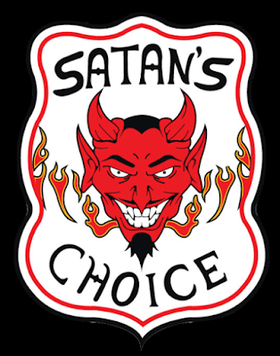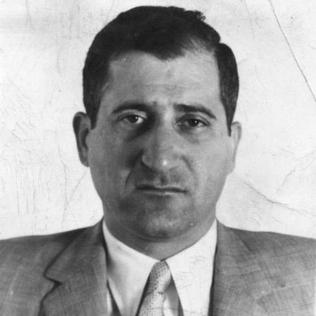Related Research Articles

Maurice Boucher was a Canadian gangster, convicted murderer, reputed drug trafficker, and outlaw biker—once president of the Hells Angels' Quebec Nomads chapter. Boucher led Montreal's Hells Angels against the rival Rock Machine biker gang during the Quebec Biker War of 1994 through 2002 in Quebec, Canada. In 2002, Boucher was convicted of ordering the murders of two Quebec prison officers in an effort to destabilize the Quebec Justice system.

The Quebec Biker War was a turf war in Montreal, Quebec, Canada, lasting from 1994 to 2002, between the Quebec branch of the Hells Angels and the Rock Machine. The war left 162 people dead, including civilians. There were also 84 bombings, and 130 cases of arson. In March 2002, American journalist Julian Rubinstein wrote about the biker war: "Considering how little attention the story has attracted outside Canada, the toll is staggering: 162 dead, scores wounded. The victims include an 11-year-old boy killed by shrapnel from one of the more than 80 bombs bikers planted around the province. Even the New York Mafia in its heyday never produced such carnage, or so terrorized civilians."
Crime in Toronto has been relatively low in comparison to other major cities, but it saw a record number of shootings in 2019. In 2017, a ranking of 60 cities by The Economist ranked Toronto as the 24th safest major city in the world, behind Tokyo, London, Paris, and Seoul, but one of the safest major cities in North America. A CEOWORLD magazine ranked Toronto as the 95th safest city in the world for 2018, running behind several other major cities like Tokyo, London, Osaka, Singapore, Hong Kong, and Taipei but safer than most cities in North America.

Satan's Choice Motorcycle Club (SCMC) was a Canadian outlaw motorcycle club that was once the dominant outlaw club in Ontario, with twelve chapters based in the province, and another in Montreal, Quebec, at its peak strength in 1977. Satan's Choice grew to more than 400 members by 1970, making it the second largest outlaw motorcycle club in the world, behind only the Hells Angels.
Wolodumir "Walter" Stadnick, also known as "Nurget", is a Canadian outlaw biker and gangster who was the third national president of the Hells Angels Motorcycle Club in Canada. Stadnick is generally credited with turning the Hells Angels into the dominant outlaw biker club in Canada. The journalists Michel Auger and Peter Edwards wrote that much about Stadnick is mysterious, ranging from what is the meaning of his sobriquet "Nurget", to how a unilingual Anglo Canadian from Hamilton became the leader of the then largely French-Canadian Hells Angels. In 2004, the journalist Tu Thanh Ha wrote that Stadnick is "a secretive man little known to the public", but "he is one of Canada's most pivotal organized-crime figures."

John Joseph Papalia, also known as Johnny Pops Papalia or "The Enforcer", was an Italian-Canadian crime boss of the Papalia crime family based in Hamilton, Ontario, Canada. The Papalia crime family is one of three major crime families in Hamilton, the other two being the Musitano crime family and the Luppino crime family.
André "Dédé" Desjardins was a Canadian union official noted for his involvement with organized crime. Desjardins served as the president of the Conseil des métiers de la construction and vice-president of the Fédération des travailleurs du Québec union between 1970 and 1974, becoming known as Le roi de la construction. During this time, Desjardins was involved in the scandal that led to the Cliche commission of 1974–75 headed by Judge Robert Cliche to examine corruption in Quebec construction unions. Afterwards, Desjardins enjoyed much success as one of the leading loan sharks in Montreal until his murder. Despite sharing the same surname, Desjardins is not related to Raynald Desjardins, a notorious mobster related to the Rizzuto crime family.
David Atwell is a Canadian outlaw biker and police informer who played a key role in the Ontario Provincial Police's (OPP) Project Develop operation against the Hells Angels between 2005 and 2007.
Mario Parente is a Canadian outlaw biker and gangster, mostly noted for serving as the Canadian national president of the Outlaws Motorcycle Club between 2000 and 2009.
Gerald "Skinny" Ward is a Canadian outlaw biker and gangster.
Frédéric Faucher is a Canadian outlaw biker and gangster who served as national president of the Rock Machine Motorcycle Club during the Quebec Biker War (1994-2002). He played a significant role in the conflict and was responsible for facilitating the merger between the Rock Machine and the Bandidos Motorcycle Club, which took place on December 1, 2001.
Paul Porter is a Canadian outlaw biker and gangster. A founding member of the Rock Machine Motorcycle Club, Porter played a major role in the Quebec Biker War (1994–2002). During this period, he expanded the club into Ontario, becoming the president of the Rock Machine's Kingston chapter. Disillusioned with the Rock Machine's decision to merge with the Bandidos, Porter led a mass defection to the Hells Angels in late 2000.
David MacDonald Carroll, better known as "Wolf", is a Canadian outlaw biker and reputed gangster who was a member of the elite Nomad chapter of the Hells Angels Motorcycle Club in Quebec. He disappeared in March 2001 after being indicted on 13 counts of first-degree murder.

Louis Roy, better known as "Mélou", was a Canadian outlaw biker and gangster, said to have been the richest Hells Angel in Quebec.
Scott Steinert was an American outlaw biker and gangster active in Montreal, Canada, generally regarded as the man who killed a 11-year boy, Daniel Desrochers, on 9 August 1995 during the Hells Angels' war against the Rock Machine.

Normand Hamel, better known as "Biff", was a Canadian outlaw biker and gangster. A senior member of the Hells Angels Motorcycle Club in Montreal, Hamel was the right-hand man of Hells Angels leader Maurice "Mom" Boucher and became one of Quebec's top drug traffickers before he was shot dead in 2000. A member of the rival Rock Machine gang, Tony Duguay, was convicted of Hamel's murder in 2006 but was acquitted of the killing in 2016 after a witness in the case admitted that he lied while on the witness stand.
Robert Donald "Donny" Petersen was a Canadian outlaw biker, writer, and alleged gangster. The author of 21 books, Petersen won the International Book Award in 2012, 2013 and 2014, and served as the national secretary and principle spokesman for the Hells Angels Motorcycle Club in Canada.
Donald Stockford is a Canadian outlaw biker, gangster and stuntman.
The Hells Angels Motorcycle Club, an international outlaw biker gang, has been involved in multiple crimes, alleged crimes, and violent incidents in Canada. The Criminal Intelligence Service Canada (CISC) has designated the Hells Angels an outlaw motorcycle gang. Hells Angels MC have been linked with drug trafficking and production, as well as many violent crimes including murder, in Canada.
References
- 1 2 3 4 Sher & Marsden 2003, p. 268.
- 1 2 3 4 5 Sher & Marsden 2003, p. 176.
- 1 2 3 4 5 Langton 2010, p. 155.
- 1 2 Sher & Marsden 2003, p. 367.
- 1 2 3 4 Langton 2010, p. 156.
- 1 2 3 4 "Court strikes down Hells Angels' appeals". Newmarket Era. 2 July 2009. Retrieved 19 December 2022.
- 1 2 Cédilot & Noël 2012, p. 295-296.
- ↑ Cédilot & Noël 2012, p. 295.
- 1 2 Cédilot & Noël 2012, p. 296.
- ↑ "Hells Angels criminal organization, judge rules". CBC News. 1 July 2005. Retrieved 19 December 2022.
- ↑ "Hells Angels member back in jail". The Hamilton Spectator. 26 April 2008. Retrieved 19 December 2022.
- ↑ Edwards & Auger 2012, p. 9.